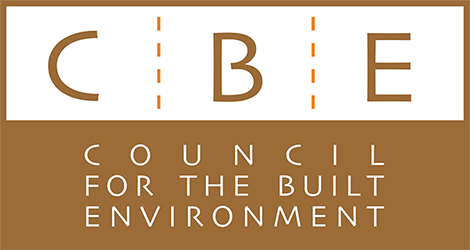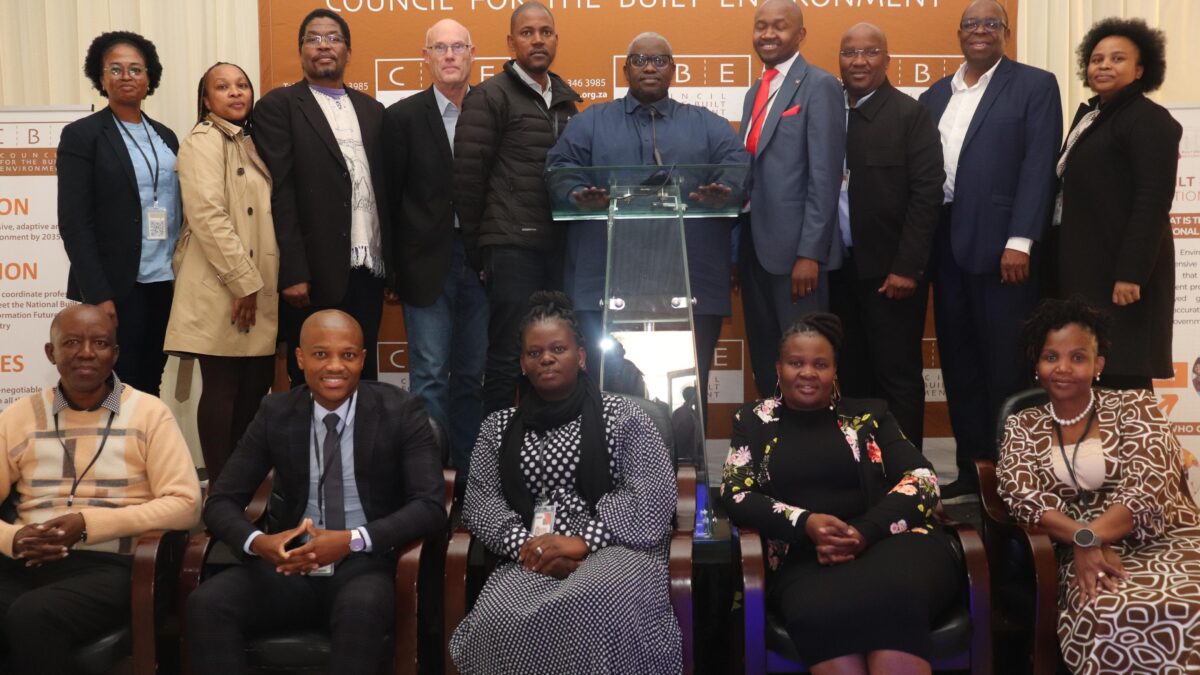Built Environment professionals will play a critical role in turning South Africa into a construction hub
Date: 29 July 2024
To: All media
Embargo: For Immediate Release
Built Environment professionals will play a critical role in turning South Africa into a construction hub
The 2024 Built Environment National Stakeholder Engagement, hosted by the Council for the Built Environment (CBE), took place on July 26, 2024, at River Meadow Minor in Pretoria. The engagement, themed on the ‘Past, Present, and Future Mirror,’ brought together key stakeholders from the built environment sector, government, academia, to interrogate challenges confronting the sector including the future, focusing on mentorship, sustainability, inclusivity, and innovation.
Ms. Amelia Mtshali, Chairperson of the CBE Council, welcomed all delegates and outlined the purpose of the gathering. In her welcoming remarks, Ms Mtshali advised the engagement to talk less and listen more. She highlighted the significance of the CBE’s 20-Year, “We are privileged to present the findings of this comprehensive review, which offers invaluable insight into the current state and prospects of the built environment in South Africa”.
The 2024 National Stakeholder Engagement featured a virtual keynote address by the Honourable Minister of Public Works and Infrastructure, Dean Macpherson highlighting the urgent need for increased infrastructure investment in South Africa. The address emphasised infrastructure development as a key driver of economic growth and job creation. He urged all stakeholders to work together to utilize the construction industry’s potential to boost economic activity and create sustainable jobs for all South Africans. Furthermore, Minister Macpherson highlighted the importance of public-private partnerships in facilitating infrastructure investment across the country and promoting a more inclusive economy.
“I invite each of you to join us in this endeavour, to contribute your expertise, your passion, and your commitment to building a better future,” said Minister Macpherson. “As South Africa works to boost its economy through infrastructure development, I encourage all stakeholders to collaborate in turning the country’s economy into a construction hub that enhances the lives of all citizens.”
Following the Minister’s address, Dr. Msizi Myeza, Chief Executive Officer of the CBE, presented the findings of the CBE’s 20-Year Review where he reflected on the evolution of the built environment sector and the profession, prevalent challenges facing the built environment, and laid out the CBE’s five-year strategic plan and focus areas. Dr. Myeza stressed the importance of empirical evidence and research in driving transformation and skills development within the sector.
The presentation underscored the significance of collaboration, professionalisation, and mentorship in fostering sectoral transformation. Dr. Myeza pointed out the necessity for a competent and capable workforce, fit for purpose, and expressed a commitment to working with stakeholders to address and transform the built environment. “We must lead the industry with a vision that is accepted by all and regulate with purpose, not just because we are given a mandate to do so, but with expertise. That’s why we must focus on research and knowledge management and coordinate collectively the work we do.”- Dr Myeza
Ms. Tintswalo Masia, Auditor-General South Africa, offered a distinctive perspective on the state of the built environment from an audit standpoint, providing valuable insights related to infrastructure, highlighting challenges such as project delays and inadequate coordination. She emphasised the need for accountability, effective resource management, intergovernmental planning, and coordination to address these issues. She further recommended professionalisation, improved reporting, and enforcement of accountability to transform the infrastructure sector.
The engagement went on to receive presentations by chairpersons of the CBE Transformation Collaborative Forums (TCF), showcasing their progress and initiatives since inception. Critical from these inputs emerged the Built Environment Women Network and the upcoming Built Environment Climate Change Indaba. This segment concluded with a panel discussion on Professional Skills and Capacity Building, led by Adjunct Prof. Nomvula Rakolote, Association of Construction Project Managers (ACPM) CEO, and featuring Presidents of the Councils for the Built Environment Professions. The panel drew attention to the need for a structured mentorship programme.
Mr Hilton Ganesen, representative of the Presidential Climate Change Commission (PICC), concluded the programme with insights on ensuring sustainability and promoting resilient infrastructure.
The built environment sector is ready to play a crucial role in boosting South Africa’s economic growth and development, considering its significance in infrastructure and development projects.
ENDS
About the CBE:
The Council for the Built Environment (CBE) is a Schedule 3A Public Entity that reports to the National Department of Public Works and Infrastructure. It is a regulatory body established under the Council for the Built Environment Act 43 of 2000 (the CBE Act) that coordinates the following six Councils for the Built Environment Professions – Architecture, Landscape Architecture, Engineering, Property Valuers, Project and Construction Management, and Quantity Surveying – and through memoranda of understanding these include Town and Regional Planning, Land Surveying, and Environmental Assessment.
The CBE was established for the purpose of instilling good conduct within the Built Environment Professions, mobilising transformation in the Built Environment Professions, protecting the interest of the public in the Built Environment and advising the South African Government on Built Environment related issues. For more information visit: www.cbe.org.za
Issued by:
Dr Msizi Myeza
Chief Executive Officer
Council for the Built Environment
Tel: 012 346 3985
www.cbe.org.za
Enquiries:
Ms Sinah Ndala
Communications Associate
Mobile: 078 423 1942
Email: sinah@cbe.org.za

